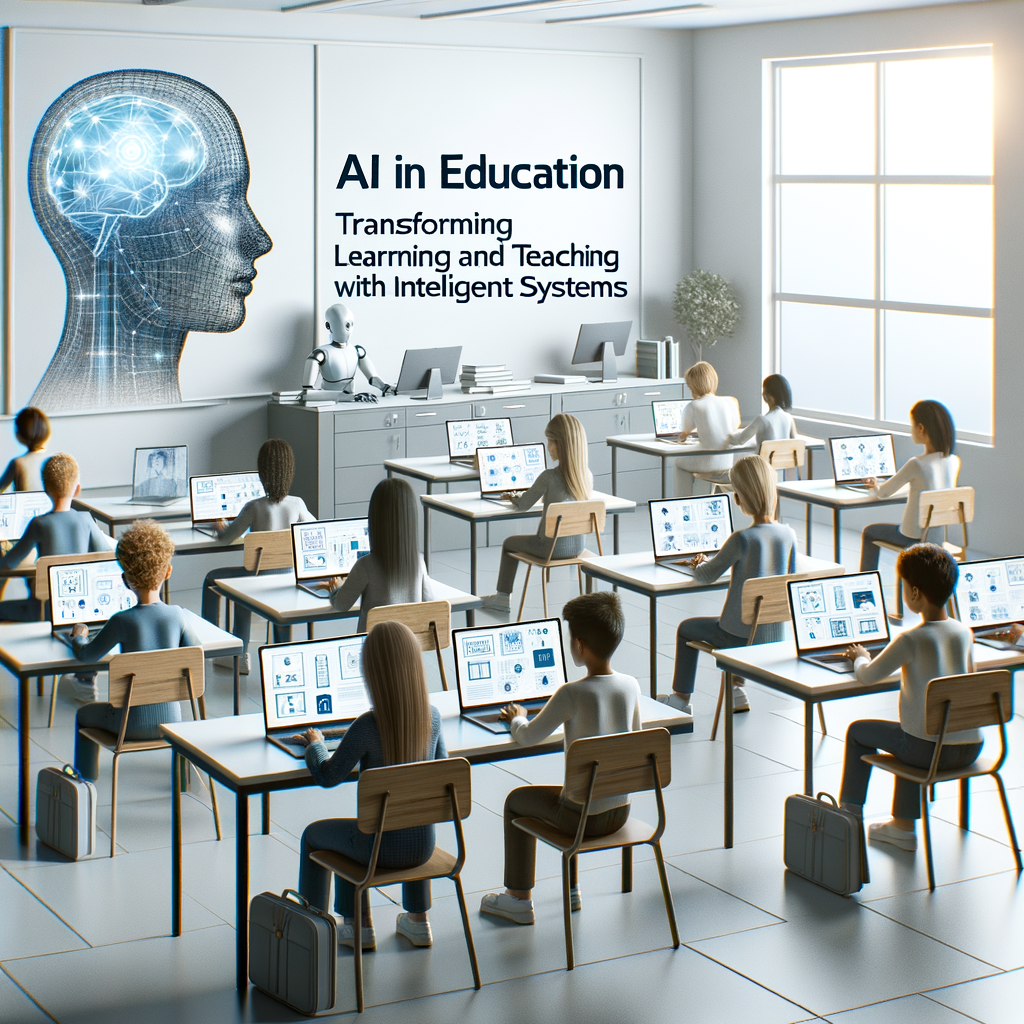
AI in Education: Transforming Learning and Teaching with Intelligent Systems
Explore how artificial intelligence is revolutionizing the educational sector, enhancing the learning experience, and transforming teaching methodologies. This blog post delves into the various AI applications in education, such as personalized learning, automated grading, and virtual tutors, highlighting the potential benefits and challenges associated with integrating AI into educational environments.
AI in Education: Transforming Learning and Teaching with Intelligent Systems
Artificial Intelligence (AI) is making significant inroads into the education sector, revolutionizing how students learn and how educators teach. From personalized learning experiences to virtual tutors and automated grading systems, AI is becoming an integral part of modern education. This article delves into the various applications of AI in education and explores how these technologies are reshaping the learning landscape, while also examining the potential challenges and ethical considerations.
The Rise of AI in Education
AI technology is no longer confined to industries such as finance, healthcare, or entertainment; it has become a powerful tool in education. Institutions worldwide are leveraging AI-driven systems to enhance the learning process and improve educational outcomes. These intelligent systems can analyze student data, identify areas where learners are struggling, and provide tailored support that meets their unique needs.
Personalized Learning Experiences
One of the most promising applications of AI in education is personalized learning. AI algorithms can adapt educational content to fit the learning style and pace of each student. For instance, if a particular student struggles with math problems, AI-powered tools can offer additional practice problems or alternative explanations until the concept is mastered. This tailored approach helps students engage more deeply with the material and progress at their own pace, potentially leading to better retention and understanding.
Virtual Tutors and Teaching Assistants
AI-powered virtual tutors can provide students with 24/7 access to assistance and support, breaking the traditional boundaries of classroom-based learning. These tutors use natural language processing to understand and respond to students' queries, making learning more interactive and accessible. Similarly, AI teaching assistants can support educators by handling routine tasks, such as answering frequently asked questions or managing course content, thereby freeing up teachers to focus on more complex educational interactions.
Automated Grading Systems
Grading is a time-consuming task for educators, but AI is streamlining this process with automated grading systems. These systems can assess standardized tests, essays, and even project work, providing immediate feedback to students. While automated grading is mostly used for objective assessments, advancements in AI are also enabling these systems to evaluate subjective content, such as essays, although they are still not without their limitations.
Data-Driven Insights for Educators
AI systems can provide educators with valuable insights into student performance and behavior. Through the analysis of vast amounts of data, teachers can identify trends, patterns, and potential issues within their classes. This information allows them to make informed decisions about curriculum adjustments and targeted interventions to support students in achieving their academic goals.
Challenges and Considerations
As with any technological advancement, the integration of AI in education comes with its own set of challenges. Privacy and data security are major concerns, as schools must ensure that sensitive student information is protected. Additionally, there is the risk of over-reliance on technology, which could potentially undermine the role of human educators. Ensuring that AI is used as a complementary tool, rather than a replacement for teachers, is crucial.
Furthermore, there is an ongoing debate about bias within AI systems, as they may inadvertently perpetuate existing inequalities if not carefully managed. It is essential for developers and educators to work together to create AI systems that are fair, transparent, and equitable.
The Future of AI in Education
The potential for AI to transform education is immense. As technology continues to advance, we can expect AI tools to become even more sophisticated and integrated into the educational experience. The challenge will be to balance innovation with ethical considerations, ensuring that AI is used to enhance education for all students, regardless of their background or abilities.
In conclusion, AI holds the promise of a more personalized, efficient, and accessible educational experience. By addressing the challenges and leveraging the strengths of this technology, educators can unlock new opportunities for learning and teaching, ultimately paving the way for a more advanced educational landscape.